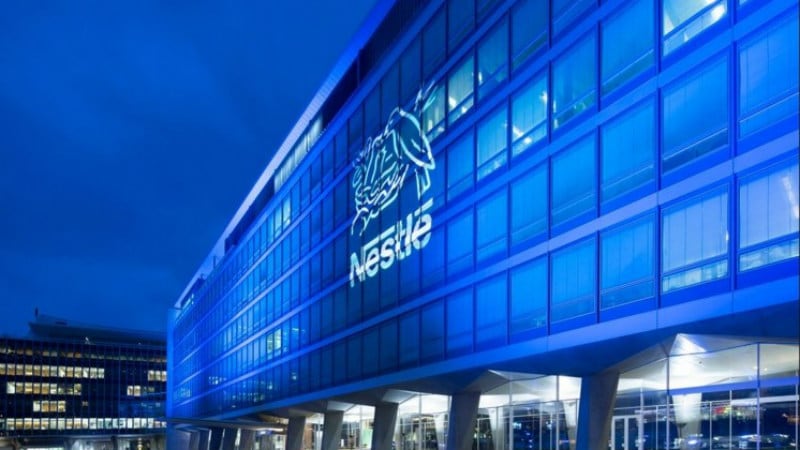Nestle Malaysia is widely considered the company’s overall manufacturing hub for most of the Asia Pacific region, and exports products to over 50 countries, from Australia to the Middle East to the entire South East Asian region.
The company operates multiple factories in Malaysia, including the Milo Manufacturing Centre of Excellence in Chembong and a Shah Alam plant manufacturing notable brands Maggi, Nescafe and soon-to-house its latest plant-based manufacturing facility.
Many of Nestle Malaysia’s workers are located in the Klang Valley region, where a huge spike in COVID-19 cases has recently been seen, and so far the firm has managed to keep its facilities safe from the pandemic by depending on both stringent testing and strict SOPs.
“We anticipated that a new wave of COVID-19 was coming even before it hit, so we started doing mass screenings and getting staff who should to work from home where possible way in advance – for those who do come in, we’ve been using rapid test kits to do screenings since around early October, and are thankful that we’ve done so,” said Aranols.
“We’ve been testing based on risk, e.g. where the staff lives and the nature of their work, but overall we’ve been doing around 25,000 tests a month – it’s RM80 (US$19.74) per test, so we’re looking at millions of dollars in tests, but I definitely say it’s been worth the cost as a risk mitigation measure.
“Case in point, we did pick up a few cases this way, and thankfully this was before they entered the factory perimeters, so [supply and manufacturing were not] affected. So definitely this has been better than actually having COVID-19 brought into any of the factories, as we have a responsibility to ensure a steady supply to the markets we sell in.”
Malaysia recently placed several states, including those making up the Klang Valley region, under a Movement Control Order (MCO) 2.0 in hopes of curbing the country’s latest rise in COVID-19 cases, reaching over 3,000 cases daily. Nestle Malaysia’s Q2 financial results took a bad hit as a result of the first MCO last year, but Aranols is confident that the situation is less dire this time around.
“The first MCO was a very hard lockdown, with basically all out-of-home activities including restaurants and hotels stopping activities – mobility was very restricted so all our out-of-home products were impacted, such as things like ready-to-drink canned beverages which are usually consumed on-the-go. We then saw an enormous bounce back in Q3 when activities resumed and in-home consumption also increased,” he said.
“This time around of course we don’t know how it will turn out yet, but from what I can see it is much softer so the impacts will be more moderate than the first MCO. By this I mean I don’t expect to see a sudden huge decline in out-of-home consumption like in Q2, or a sudden acceleration back up like in Q3.
“In addition, many people have also basically learned how to live with COVID-19 hanging around, they’re less scared and unsure of how to respond and are making more rational movements.
“The government is working hard looking for a balance between protection and the economy, and so far we’re still doing better that the US or EU – the important thing now [when dealing with COVID-19] is to be humble, to assume that this virus is smart and will find a way to infect as and when it can, so we must build layers of prevention, contamination and awareness to prevent the situation from worsening.”
Affordability as priority
That said, he also highlighted that the company is aware how COVID-19’s impacts on the economy are also burdening a large part of the population, hence keeping products affordable is a key priority in their strategy.
“We are aware that many of our brands are an important source of nutrition for the B40 (Bottom 40% in terms of income range) in Malaysia, and that many of these consumers have been impacted financially and are struggling at the moment,” he said.
“As such, in addition to community programmes we also are making sure to do our part and offer product value for money, especially over the next few months – in fact, I feel that the F&B industry as a whole needs to be mindful about this, and continue to ensure the affordability of F&B products, especially for this large part of the population.”
2021 outlook
Despite the second lockdown, Aranols still believes that the outcome for the F&B industry in Malaysia is ‘reasonably positive’, hoping that the vaccination will kickstart recovery for the country.
“I don’t want to be overly bullish as there are still many big uncertainties surrounding all of this, but the hope definitely is that with vaccination on the way, in a few months we can leave all of these restrictions behind us,” he said.
“Economically, the national Budget 2021 in Malaysia has laid out many reserves and plans to reactivate the economy too.
“So although the reality is of course still uncertain for Q1 and maybe Q2, I think that things will normalise faster in this part of the world, and that the economic prospects will be more confident in 2021 as a whole.”


